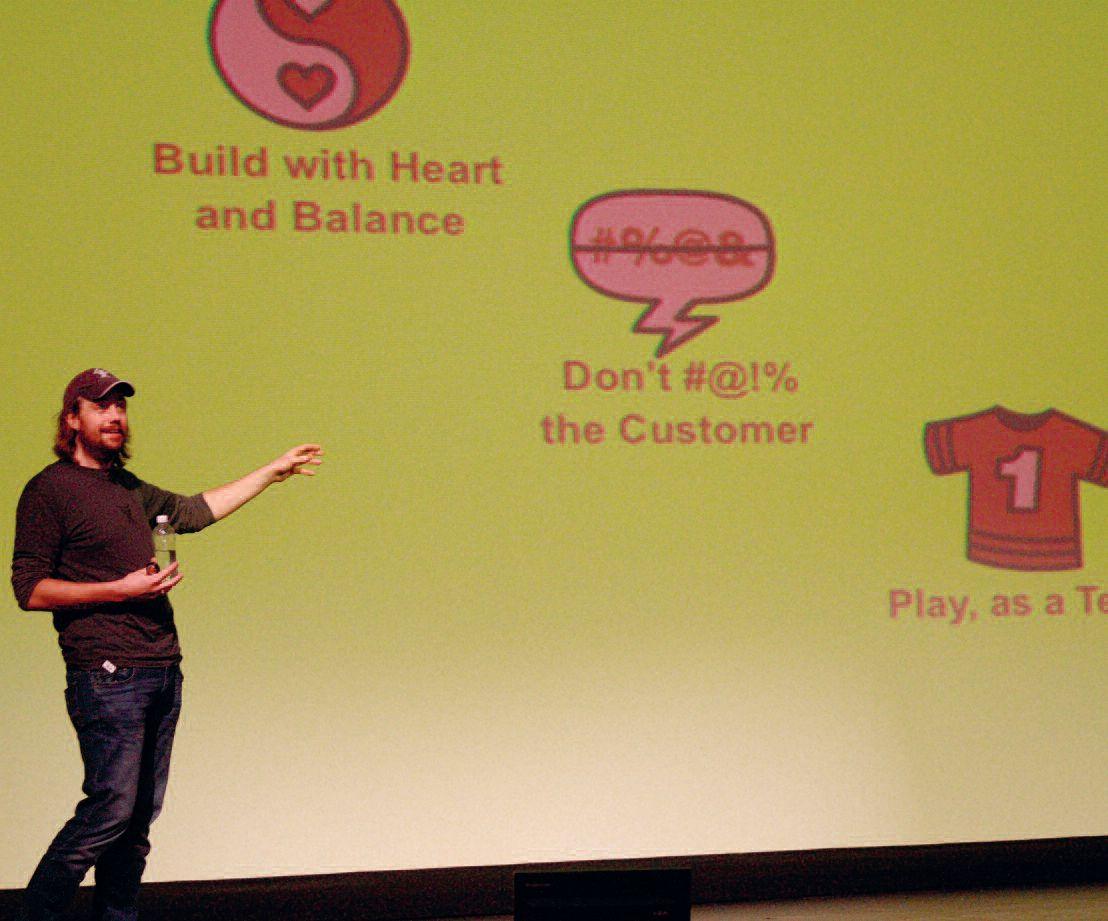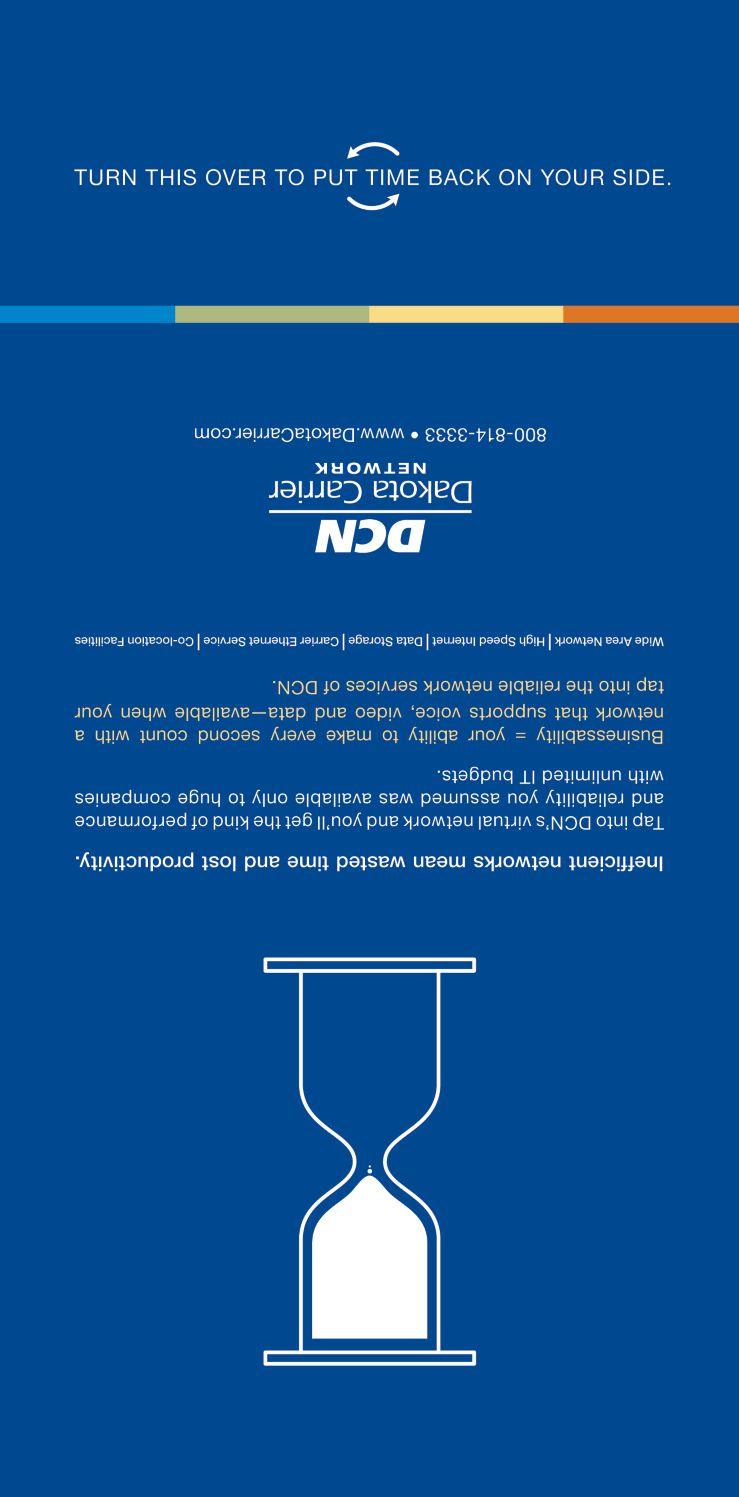
4 minute read
Encouraging entrepreneurial values
Event brings community together to inspire entrepreneurs
BY KRIS BEVILL
Arthur Ventures Growth Fund LLC co-founder Doug Burgum, left, Forbes magazine publisher Rich Karlgaard, center, and Atlassian cofounder and co-CEO Mike Cannon-Brookes answer attendee questions during an event held April 26 in Fargo to inspire and encourage entrepreneurship in the community.
Rich Karlgaard is on a bit of a self-described rampage about jerks. The Bismarck, N.D., native, Forbes magazine publisher, entrepreneur and investor says he’s been noticing a trend that young people, particularly in the Silicon Valley, think they must be jerks to succeed in business. The problem, he says, is that they don’t realize their early jerky behavior will come back to haunt them in later years.
“People will work for a hard-nosed CEO if it’s not about his ego, but about maintaining value of the company, serving customers, innovating, keeping on a hard pace,” he says. “People will work for [those kinds of CEOs]. They won’t work for the ego-driven jerk. I’m just shocked at the profound misunderstanding people have about that.”
Karlgaard was in Fargo to take part in Cultivate.you, a public event hosted by local venture capital fund Arthur Ventures Growth Fund LLC on April 26 with the goal of inspiring and encouraging entrepreneurship in the community. In a conversation prior to the event, Karlgaard spoke at length about the factors paving the way for Midwest communities like Fargo to stake their claim as leaders in returning the U.S. economy to acceptable annual growth rates. He noted that not only is Fargo less affected by the egotistical behavior on display among young entrepreneurs elsewhere, it also boasts available startup capital through firms like Arthur Ventures, a solid base of existing role models with a history of successful business experience, and a density of technological talent supplemented by thousands of new prospects at nearby universities. Add to that the fact that technology development tools are now widely available and affordable, and that the cost of living in places like Fargo is ridiculously low compared to cities in Silicon Valley, and the potential for a technology hub to emerge in Fargo is supreme.
“All the forces are lining up for a community like Fargo,” Karlgaard said. “You can have the best software developers in the world and you can have access to billionaire venture capitalists, but if the playing field has been leveled and you can develop technology cheaper, you don’t need billion-dollar venture capitalists. What matters is domain expertise.”
The technological transformation of health care, manufacturing, agriculture and education will be key in returning America to a 4 percent annual growth rate, compared to its current lackluster 2.9 percent economic growth rate, and the Midwest holds domain expertise in all of those areas, according to Karlgaard. But it will take more than domain expertise to succeed in what he says is the most binary economy he’s ever seen. “Average doesn’t cut it anymore,” he says. “You have to be good, striving for great, or you’re going to be in trouble.”
Karlgaard believes the most successful companies will continue to be those built upon strong moral values with a deep sense of purpose — characteristics which also help retain the best employees. “I’m a huge believer in the value of culture and that culture springs from a profound purpose – not a purpose that is written as a corporate mission on a wall but something deeper,” he says. “If you don’t get that right then you’re off on a wrong track and you will never be able to attract the right kind of people.”
Arthur Ventures co-founder Doug Burgum echoed that sentiment and said the fund is focused on supporting companies with the right combination of values and ideas. “If the CEO and the founder don’t have the right values, then it’s a nonstarter no matter how good the idea is,” he says.
About 750 people attended the morning-long event, which included speeches from Karlgaard and Mike Cannon-Brookes, co-founder and co-CEO of Australian software development company Atlassian, as well as a question-and-answer session with both speakers and Burgum. Attendees included Arthur Ventures partner companies, college students, young professionals and entrepreneurs of all ages, including 100 eighth graders from West Fargo’s STEM center, who were welcomed by Burgum as being “future entrepreneurs.”
Cannon-Brookes, likely unknown to many in the crowd prior to his speech, captivated the audience with an entertaining look at how he and fellow company cofounder Scott Farquhar grew Atlassian from a startup launched on a shoe-string budget a decade ago by two young 20-somethings to the 700-employee global software development firm that it is today. He, too, stressed the importance of values and innovation in the workplace, but through a slightly different approach, reflecting that of the young professional generation. He drew laughs from the crowd with a slide displaying Atlassian’s five straight-forward core values: Open Company, No Bullshit; Build with Heart and Balance; Don’t #@!% the Customer; Play, as a Team and Be the
Change You Seek.
Cannon-Brookes offered several examples of Atlassian’s innovative approach to the workplace, including company-wide “ShipIt” days held every quarter, which consist of a 24-hour period given over to brainstorming and delivering pitches for anything related to company products.

Some of the ShipIt ideas become new features for company products, but the true motivation behind the activity is simply to foster creativity and make the workplace a little more fun.
Atlassian also gives employees five work days each year to devote to nonprofit projects. CannonBrookes said the nonprofit work allowance wasn’t created as a public relations strategy, but it has proven to draw in employees, reducing Atlassian’s recruitment and training load. “So if you need a
P&L [profit and loss] reason to do good, that’s one,” he told attendees.
During the question-and-answer session, one of the eighth-graders asked for advice for students interested in starting a business. The trio advised that the first rules of entrepreneurship are to break the rules, be curious, be passionate and challenge the status quo. Karlgaard then suggested that would-be entrepreneurs ask themselves to identify and utilize their unfair advantage. “Passion and stick-to-itiveness can be unfair advantages,” he said. “An unfair advantage can be a good thing. It means the thing that you do that no one else can do.” PB
Kris Bevill Editor, Prairie Business 701-306-8561, kbevill@prairiebizmag.com
REACH MORE THAN 110,000 READERS EACH MONTH

WHEN YOU ADVERTISE WITH PRAIRIE BUSINESS AND TALKING POINTS!
Prairie Business, a monthly magazine, and Talking Points, a weekly newsletter, focus on the businesses in the Dakotas and Minnesota that drive the regional economy, including agriculture, energy, health care, construction, architecture and engineering, higher education and more.
In the March issue of Prairie Business, construction companies talk about how they are keeping up with the region’s building boom.
Subscribe to the free digital edition of Prairie Business and sign up to receive Talking Points at www.prairiebizmag.com.
Also, for daily business news, go to www.prairiebizmag.com.
To advertise:

Brad Boyd 800.641.0683
Shelly Larson 701.866.3628 www.prairiebizmag.com










